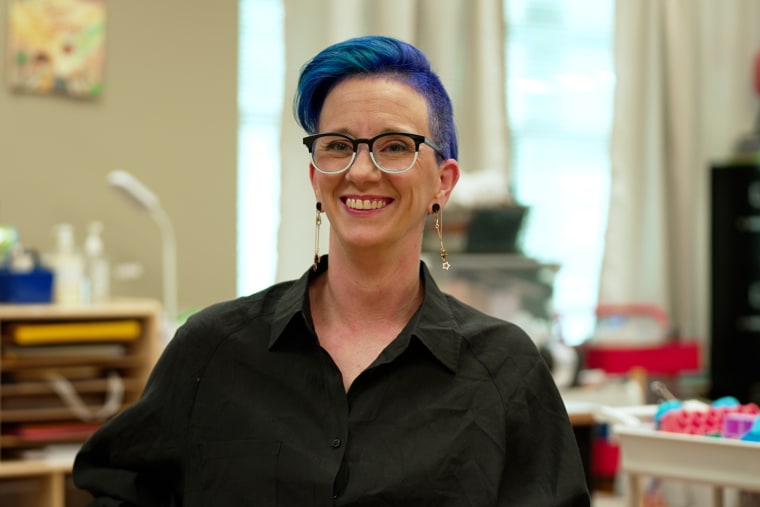
It can be challenging to locate high-quality, easily accessible, and reasonably priced early child care across the nation.
By increasing the number of at-home day care centers, a developing program in Alabama hopes to alleviate that issue. Its developer believes this will provide harried parents more options for care while simultaneously boosting the workforce.
According to Holly Glasgow, director of child development at Shelton State Community College in Tuscaloosa, Alabama has a sizable workforce and a sizable workforce demand. We also know that one of the things that frequently presents a barrier is child care.
Glasgow is spearheading 3by3, a Shelton State initiative that seeks to increase the number of in-home day care facilities available to nearby families.
Glasgow estimates that there are roughly 3,000 child care slots available for the more than 12,000 children under the age of five in Tuscaloosa County, which has less than 50 licensed child care centers.
We immediately came to the conclusion that, no matter how much money they were able to gather, it would not be sufficient to actually construct enough centers throughout our state to be able to significantly alter the amount of child care slots that we currently have, Glasgow said.
However, we may instead concentrate on family child care facilities. They enable us to sort of address workforce demands in a somewhat different way. “They allow us to incorporate child care into a family environment,” she continued.
For many years, parents and employers across have struggled with the shortage of reasonably priced, high-quality child care; it even became a topic of discussion during this year’s presidential election. Since the pandemic, when many daycare facilities shuttered and several parents were unable to return to work, it has been a major topic of conversation when it comes to the economy. 35% of parents with children under the age of five do not have formal child care arrangements, according to the Census Bureau.
Finding child care during off-peak hours can be difficult in the Tuscaloosa area, where major businesses include manufacturing facilities that are open twenty-four hours a day.
One thing is evident when you combine the shortage with shift-based work: Tuscaloosa County needs additional child care for its families, with some of that care taking place at night, according to the program’s website.
One of the biggest obstacles to starting an at-home day care is the startup expenditures, which the 3by3 initiative helps people with by matching them with funds and partner groups.
Additionally, the participants receive roughly 100 hours of instruction covering everything from social media marketing to the necessary home modifications.
By visiting frequently and providing toys, books, carbon monoxide sensors, fire extinguishers, outlet covers, and other necessities, Glasgow helps ensure that every home is up to code.
Three to six children can be cared for in the majority of these houses.
The program, which launched earlier this year, has helped to set up 19 at-home day cares, each with three to six children. All profits are retained by the operators.
Among them is Lynnette Washington, a member of the inaugural 3by3 program cohort who started a home day care that her daughter can also attend.
To be able to help kids and parents and stuff like that, because everybody got to work, and to be able to help, that s an awesome feeling, she said.
Receiving quality child care at a young age can improve numerous outcomes for children, said Steve Barnett, senior co-director of the National Institute for Early Education Research.
We know that kids who don t get these investments can be 18 months behind when they start school. It s very difficult to ever catch up, Barnett said.
Their language, literacy and math skills, we set the foundation for all of that. That s so important for the rest of their lives, he added. And we know that if we do this well, kids will be more likely to go on to higher education and to be more productive and successful. And actually they ll live longer lives, healthier because of this.
Glasgow said she has big dreams for 3by3.
I don t think Alabama is where we will stop. I do think going forward, we ll be able to provide a model for other states, she said.
Early care and early education is pivotal, Glasgow added. We have to make it better. And it s much easier to spend the money doing it better at the beginning than to remediate the issues at the end. By leaps and bounds.
Note: Every piece of content is rigorously reviewed by our team of experienced writers and editors to ensure its accuracy. Our writers use credible sources and adhere to strict fact-checking protocols to verify all claims and data before publication. If an error is identified, we promptly correct it and strive for transparency in all updates, feel free to reach out to us via email. We appreciate your trust and support!
